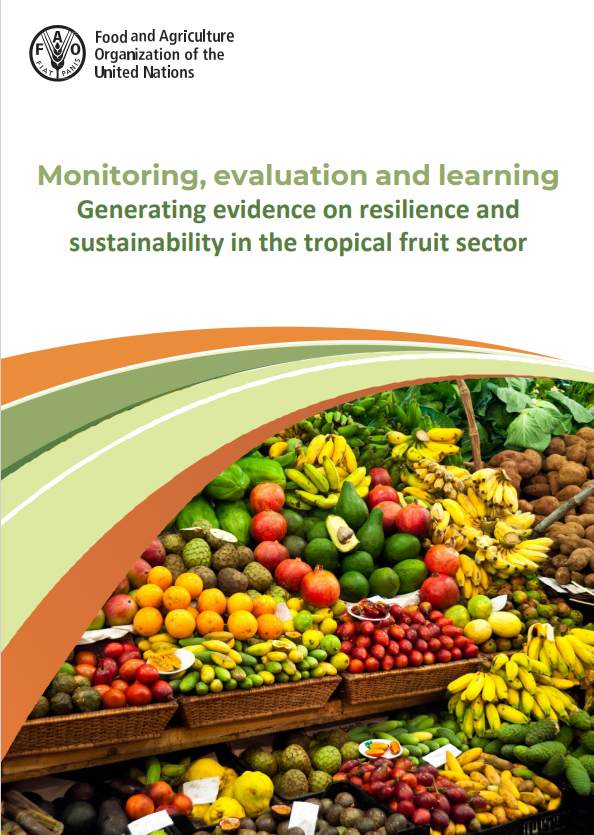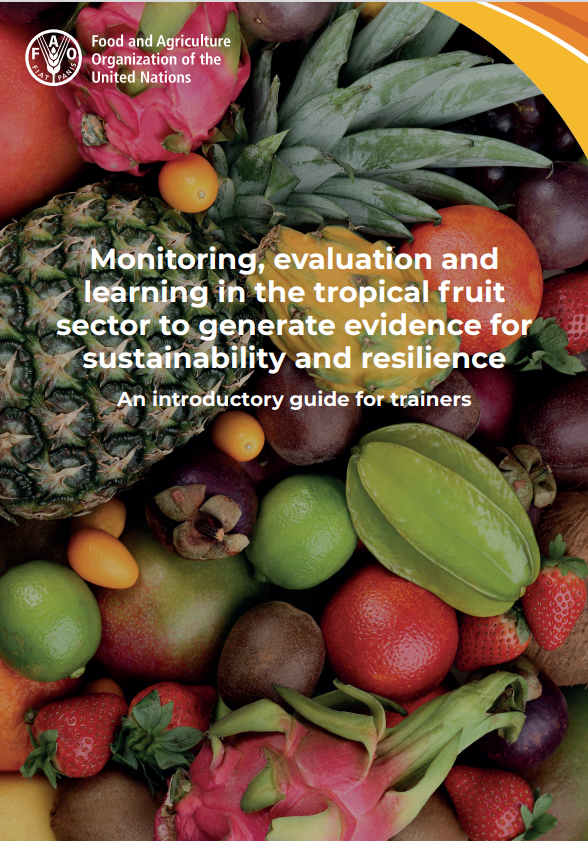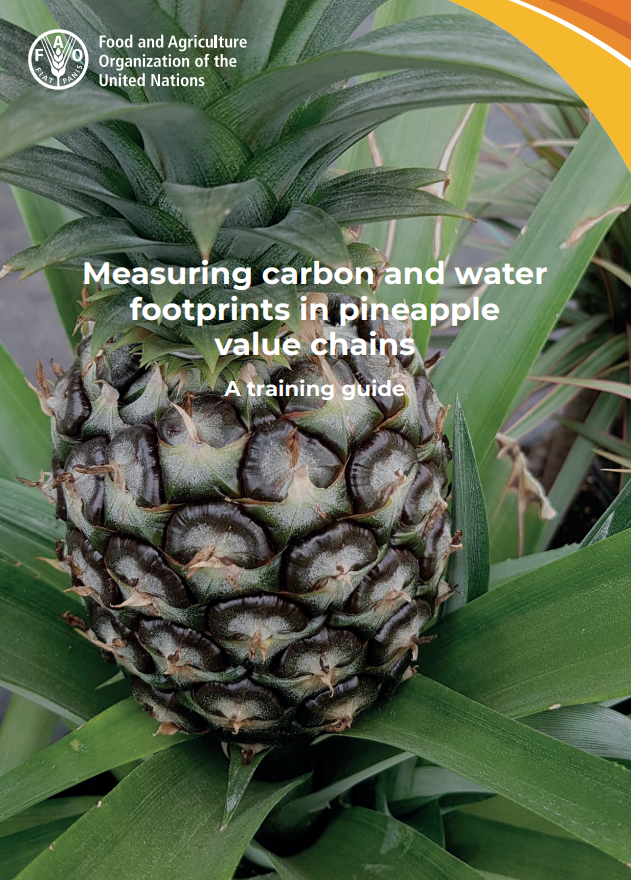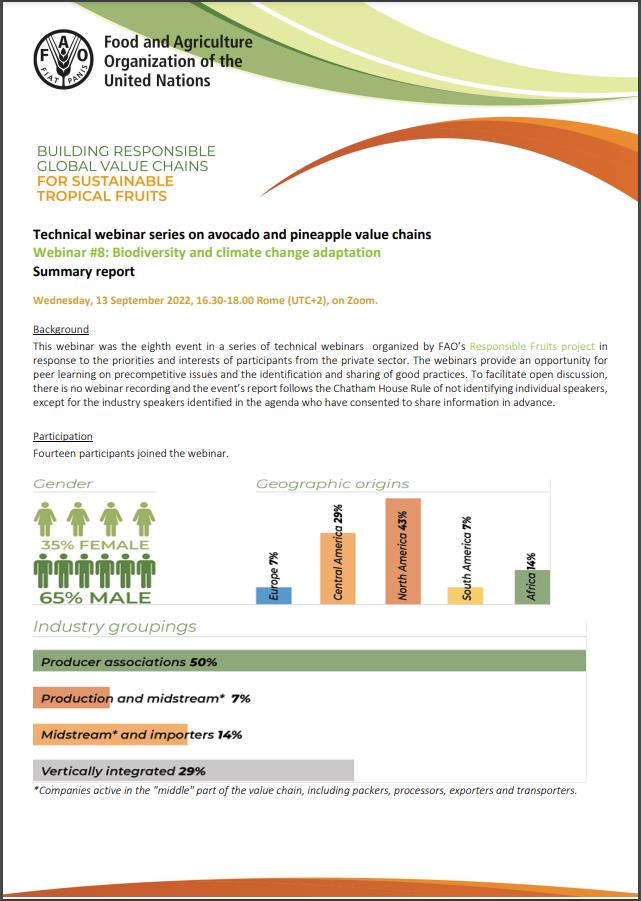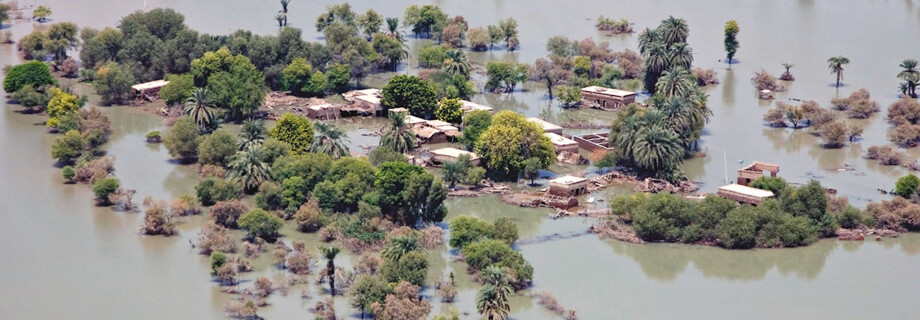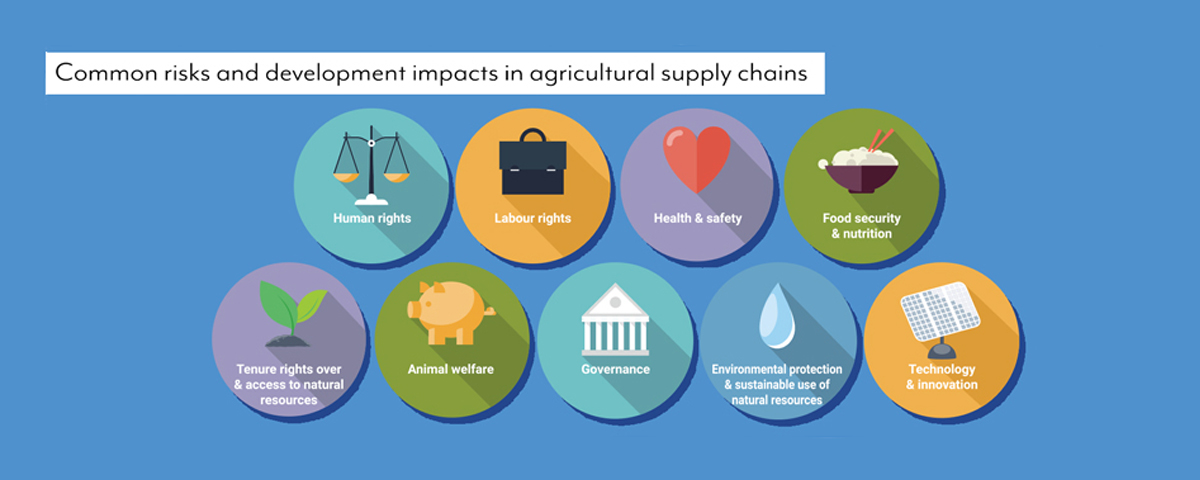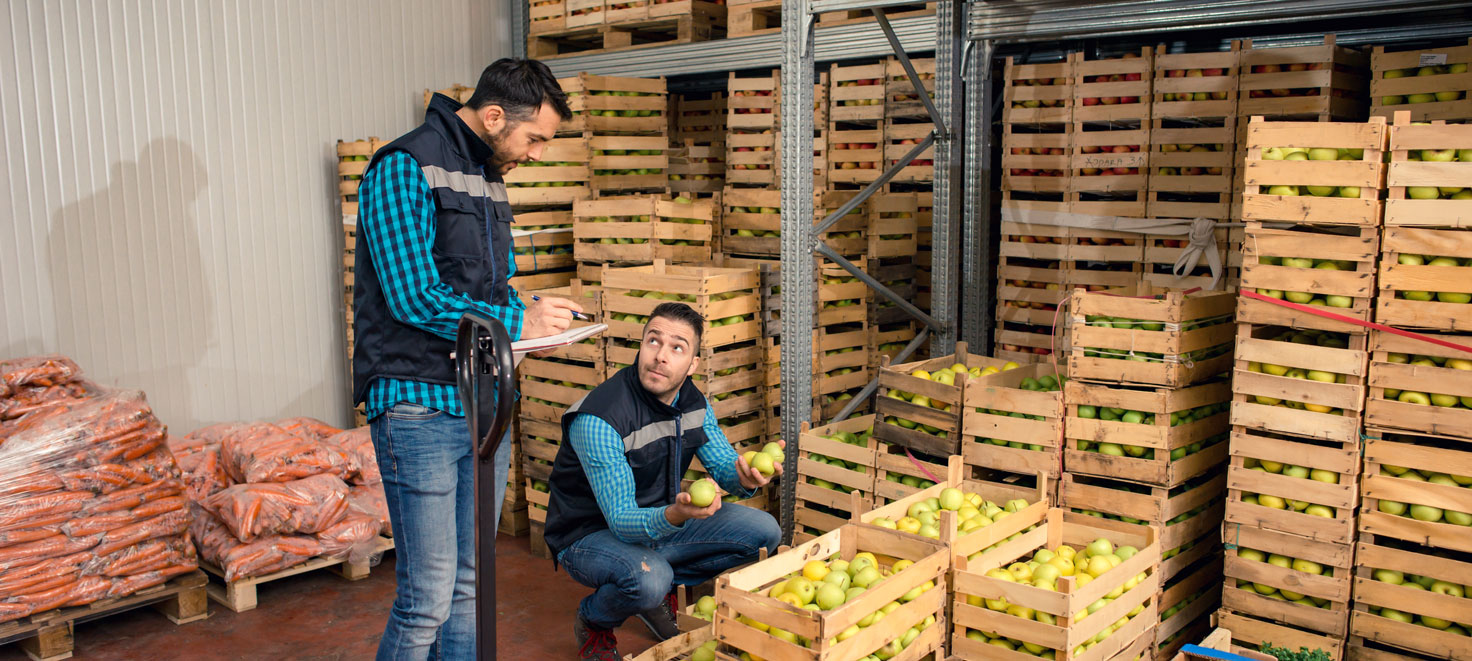Responsible Fruits
Concerned about business risk in avocado or pineapple supply chains?
The global production and trade of tropical fruits has grown dramatically while markets are demanding more action on environmental and social issues. Extreme weather, pests and diseases, economic downturns and other shocks have shown that business risks must be addressed to ensure continued success.
Companies are already taking steps to address sustainability risk in their operations.
However, value chains are vulnerable to risks and shocks beyond the control of any single actor. Thus, concerted actions can benefit all industry stakeholders and is why FAO is leading efforts to build responsible global value chains for more inclusive, resilient and sustainable production and trade of tropical fruits.
What is FAO doing?
This effort builds on more than a decade of experience in working with the private sector on tropical fruits. FAO hosts the secretariat and facilitates the World Banana Forum where industry players discuss challenges, seek technical support, and share good practices and innovations for sustainability in the banana sector. FAO led the Responsible Fruits Project (2020 to 2024, with support from the Federal Republic of Germany) working with over 250 stakeholders to make avocado and pineapple value chains more resilient and sustainable. FAO worked with over 30 leading enterprises and industry associations to apply the risk-based due diligence recommendations in the OECD-FAO Guidance for Responsible Agricultural Supply Chains. Now FAO is leading the development of a new project to improve the inclusiveness, resilience and sustainability of tropical fruit value chains (expected to start in the fourth quarter of 2025).
FAO's work:
helps companies to strengthen or establish risk-based due diligence systems to make their operations more sustainable and resilient to external shocks, such as extreme weather and pandemics; | |
provides a confidential environment for peer learning on pre-competitive issues; | |
identifies measures and good practices to overcome challenges limiting resilience and sustainability; | |
develops demand-driven guides and briefs, including good practices, to address technical challenges identified by industry actors and other stakeholders; and | |
| analyses the policy environment and incentives in order to identify opportunities to accelerate sustainable investment in supply chains. |
Learn more about the activities under "Focus areas" on the right of this page.
What are the benefits of joining the new project?
Through its activities, FAO has reached more than 200 organizations in tropical fruit value chains. All interested producers, companies, trade associations, labour organizations and producer organizations involved in avocado or pineapple value chains may ask to join the project.
Participants in the new project will:
| provide guidance on where the project should focus its resources by identifying priorities and good practices to reduce risk and enhance inclusiveness, resilience and sustainability;
|
| identify priorities for peer-learning webinars, capacity development events and technical guides; |
|
learn how others address challenges in pre-competitive issues; and
|
| have early access to technical and capacity development materials created by the project. |
There is no cost to participate. Confidentiality will be strictly protected.
Latest publications
Sustainable Tropical Fruits Series
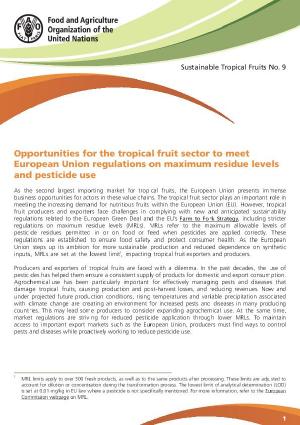
Opportunities for the tropical fruit sector to meet European Union regulations on maximum residue levels and pesticide use
18/01/2024
This technical brief explores the challenges and opportunities confronting the tropical fruit sector in meeting European Union (EU) regulations on maximum residue levels (MRLs) and pesticide use. The EU's Farm to Fork Strategy aims to cut chemical pesticide use by half by 2030. Within this context, producers targeting the EU market are confronted with the dilemma of reducing pesticide use while tackling climate change-induced pest challenges.
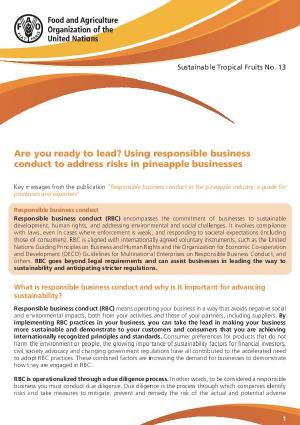
Are you ready to lead? Using responsible business conduct to address risks in pineapple businesses
27/09/2024
Responsible business conduct (RBC), implemented through due diligence, can help pineapple producers and businesses improve the sustainability of their operations and gain or maintain access to markets. By adopting RBC and due diligence processes, businesses can mitigate social and environmental risks, avoid financial losses, and enhance long-term profitability.
Projects
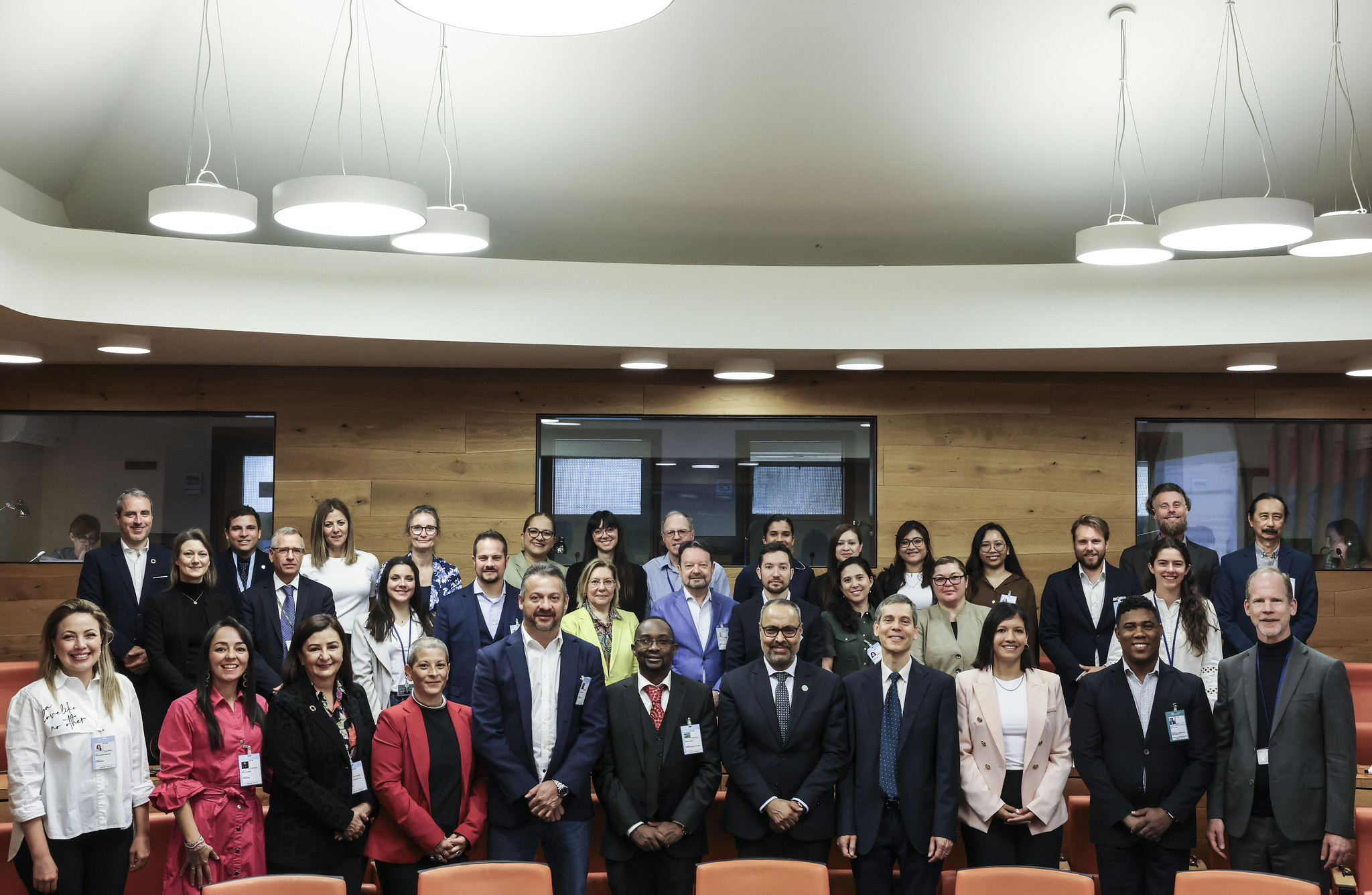
Focus areas
- Supporting due diligence in the avocado and pineapple sectors
- Responsible business conduct: minimizing social and environmental impacts in the tropical fruit sector
- How can the tropical fruit sector contribute to climate action?
- Building more resilient avocado and pineapple value chains
Related links
- World Banana Forum
- FAO Responsible Business Conduct (RBC) in Agriculture
- OECD-FAO Guidance for Responsible Agricultural Supply Chains
- Tropical fruits
- International Tropical Fruits Network (TFNet)
Contact us:

